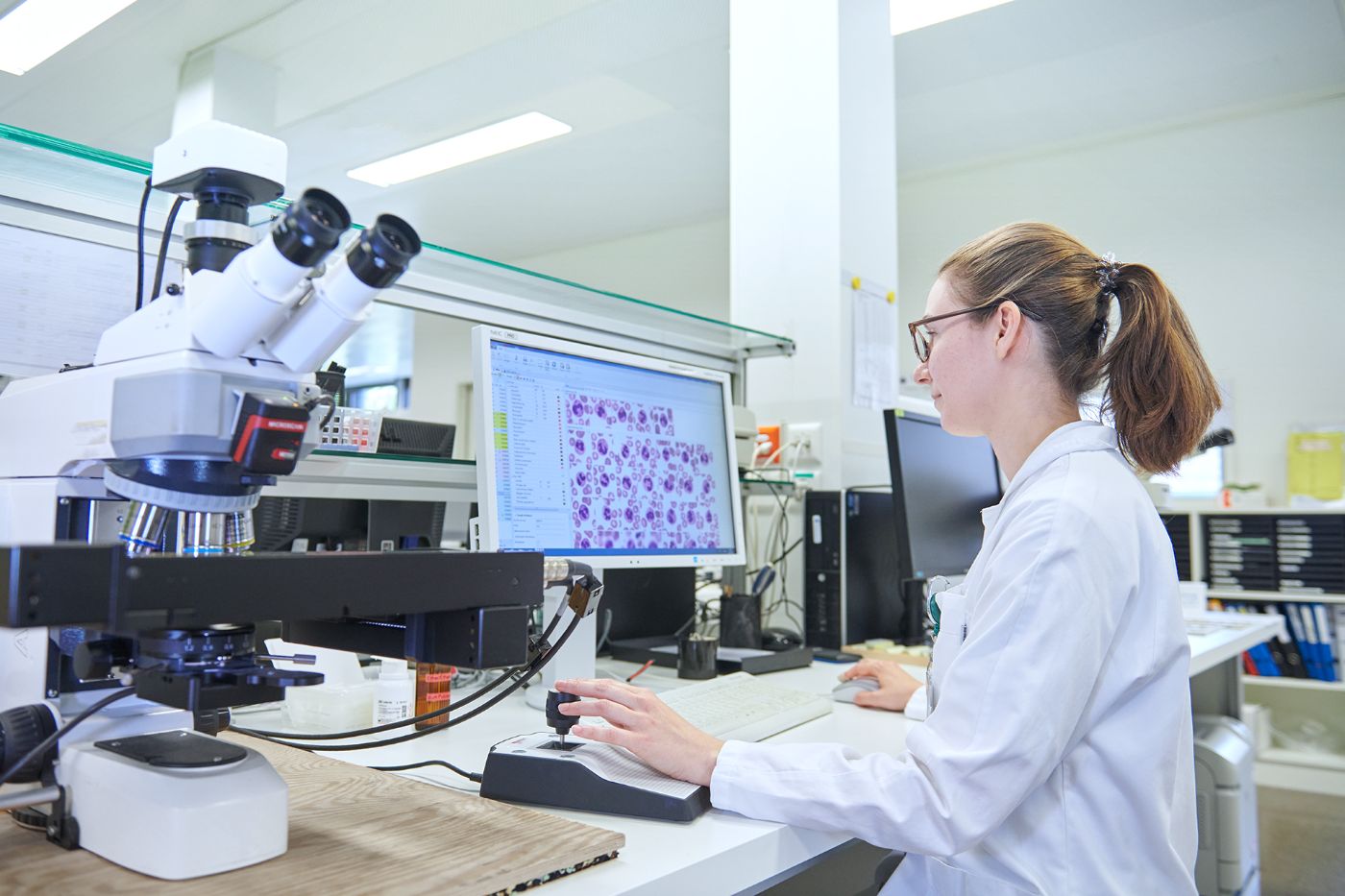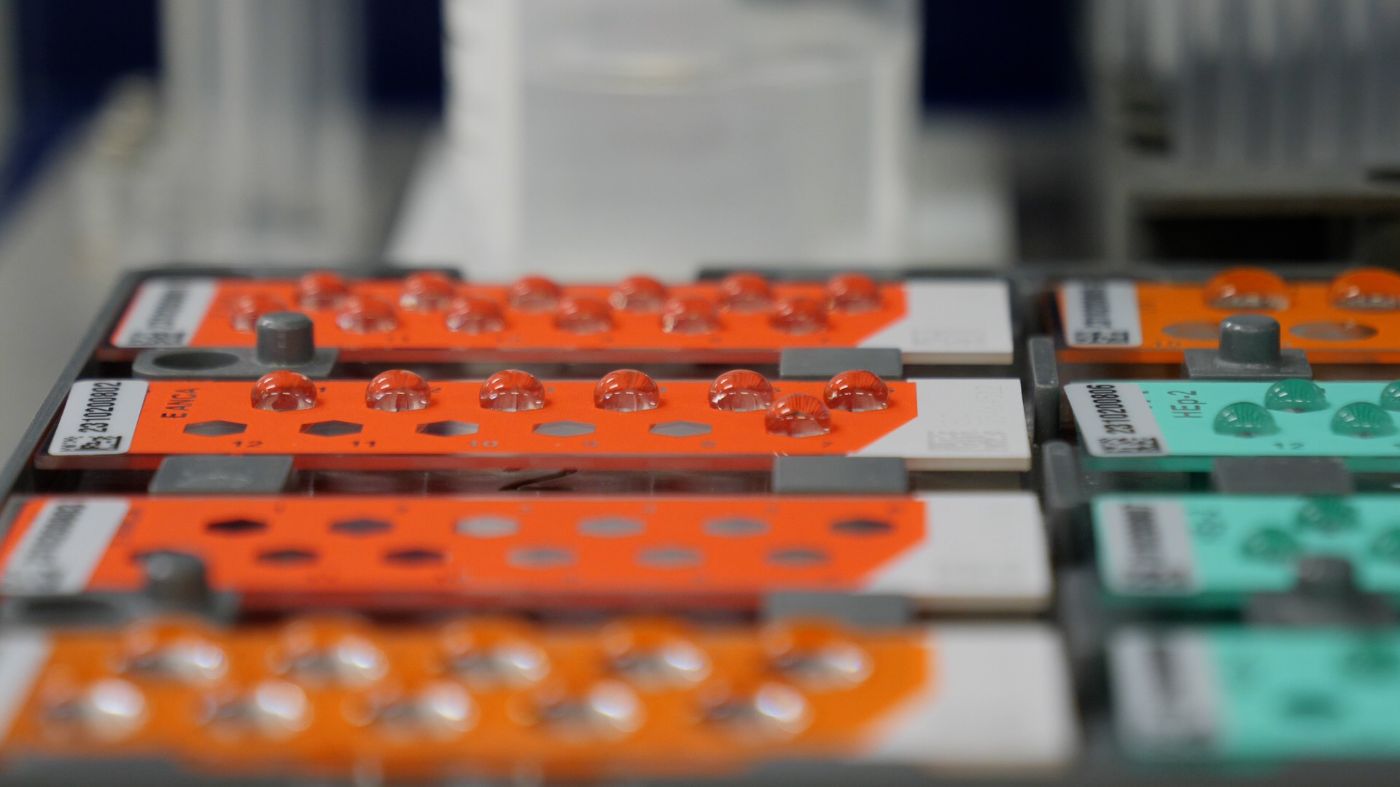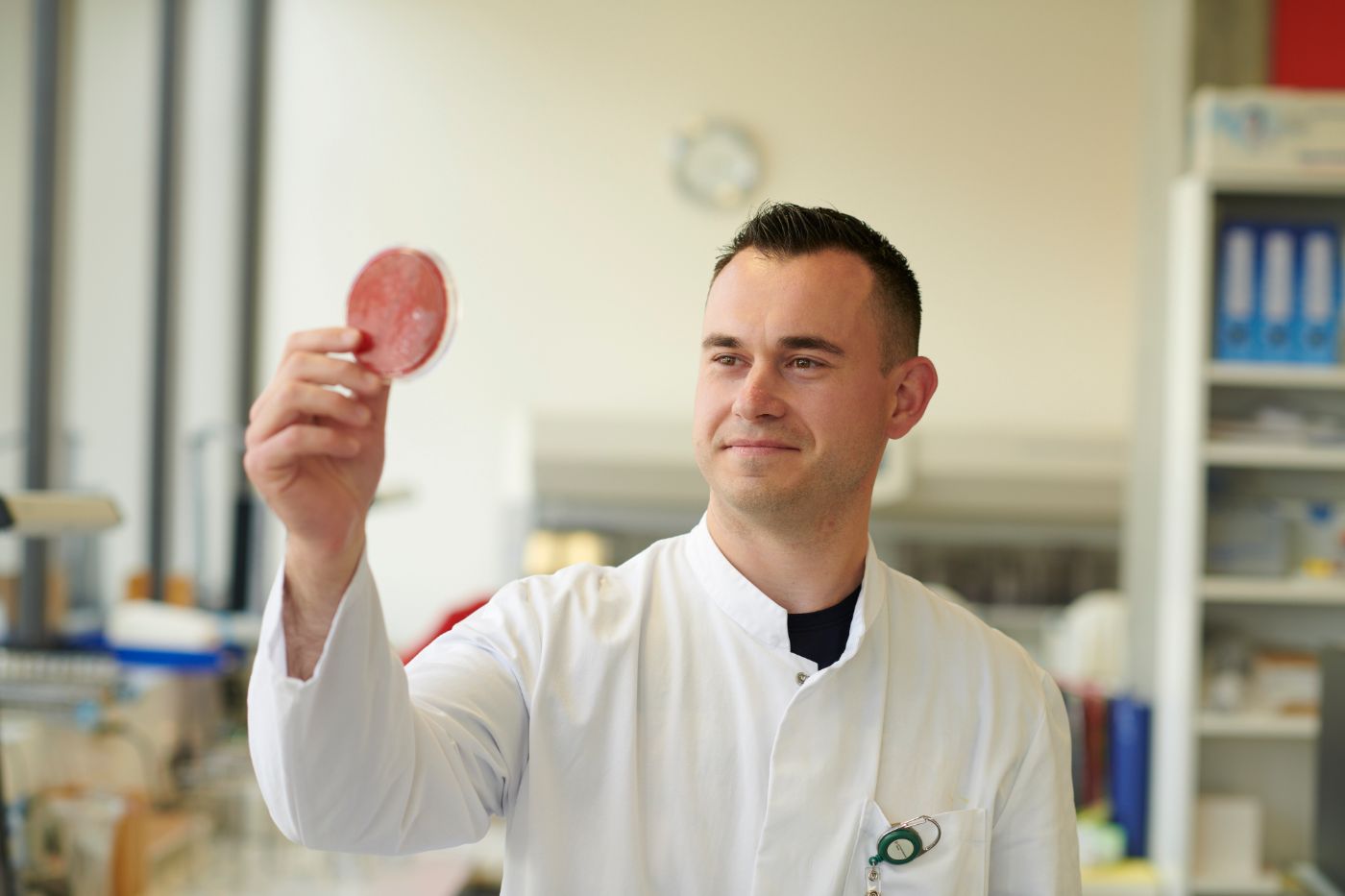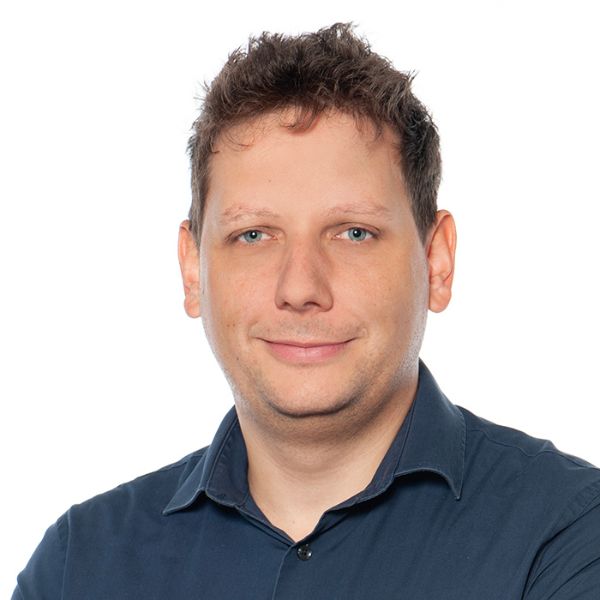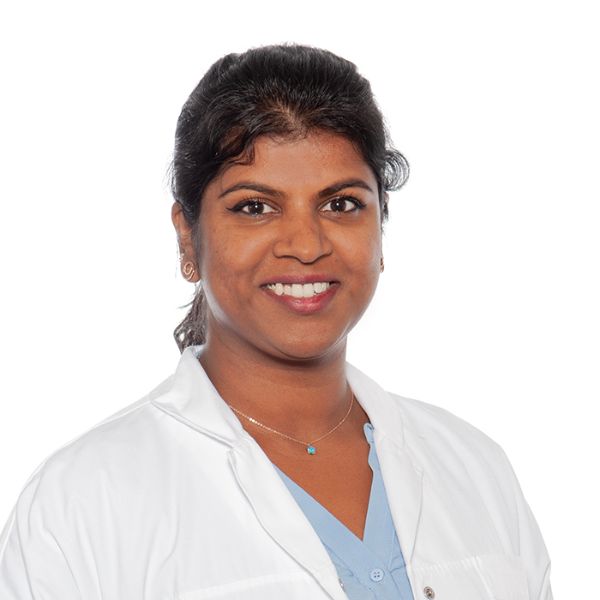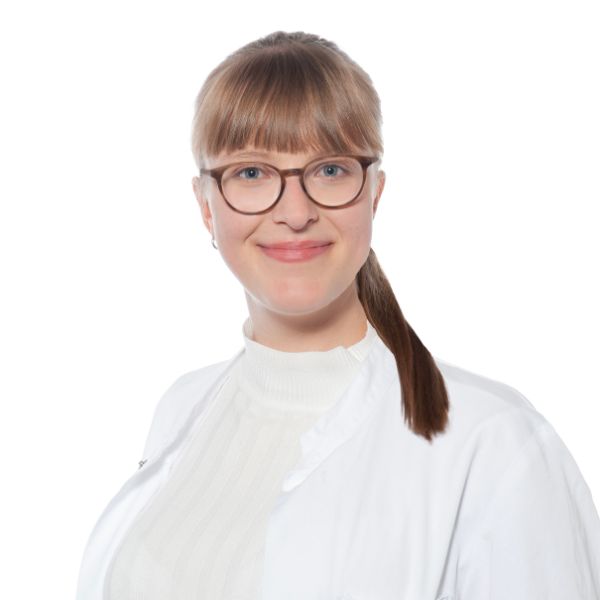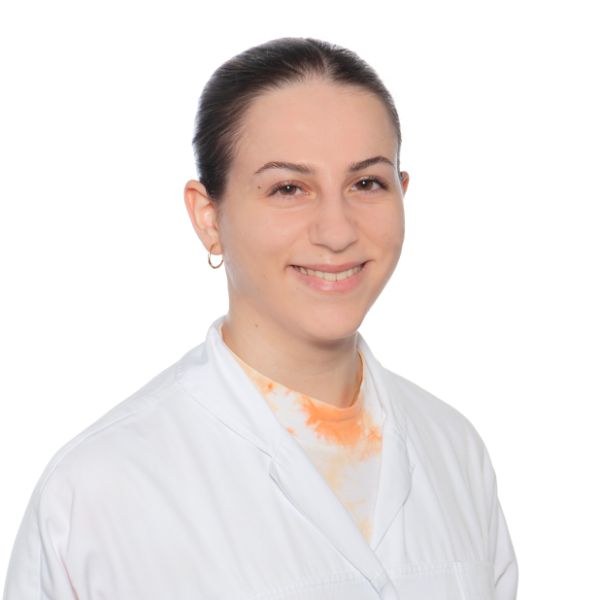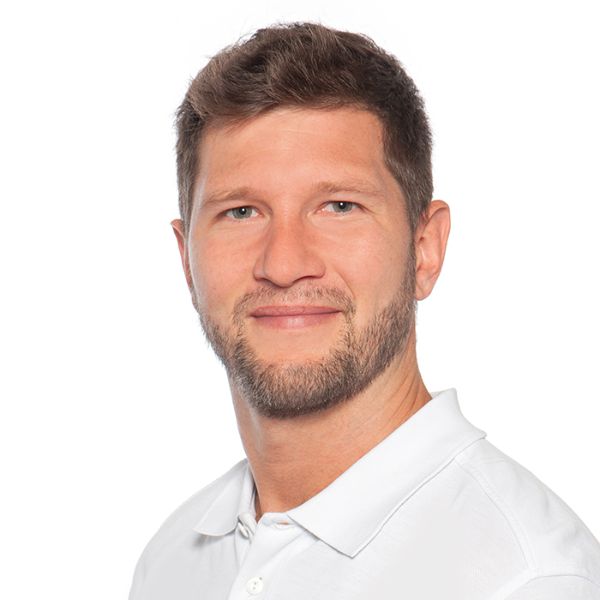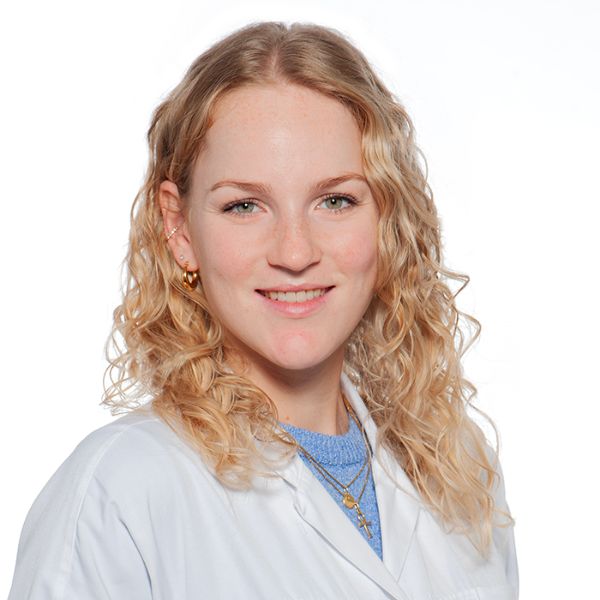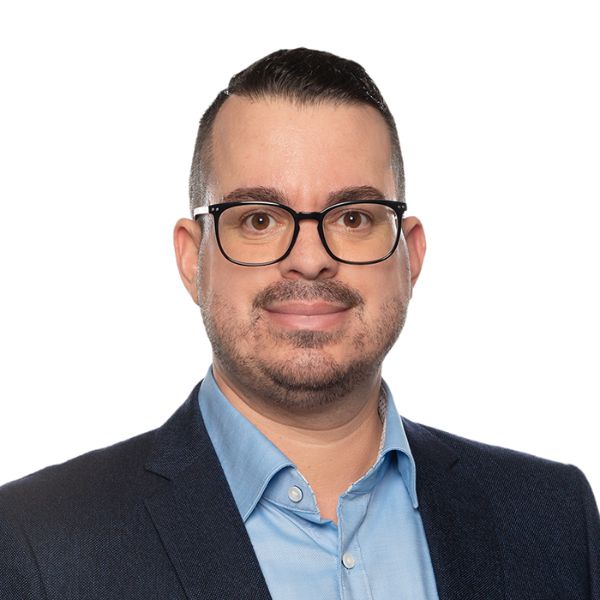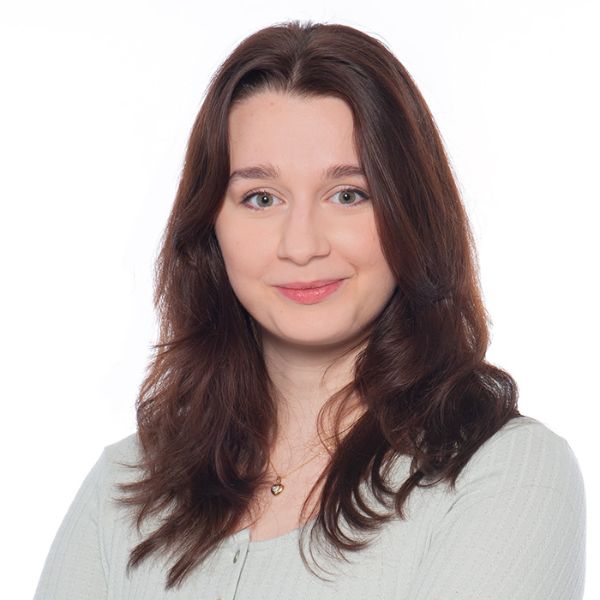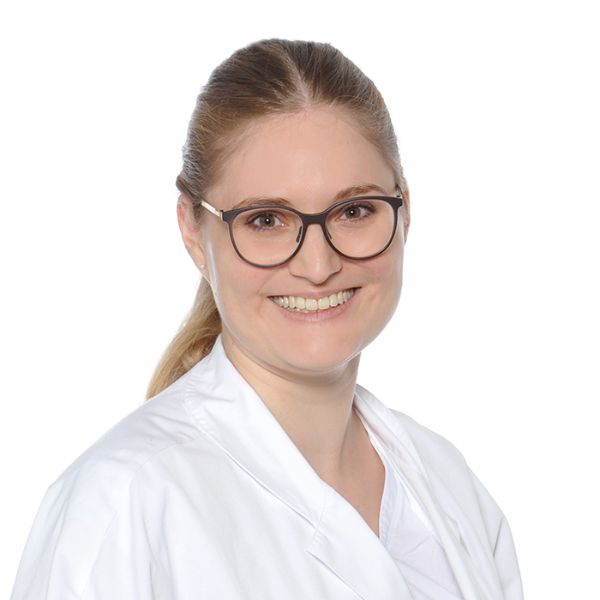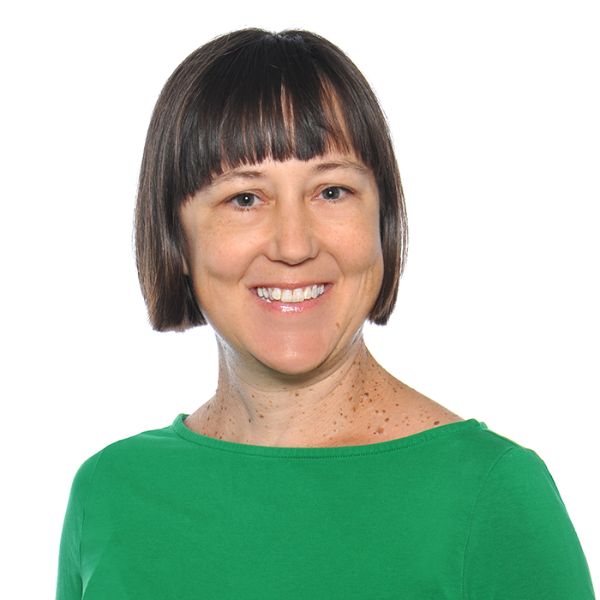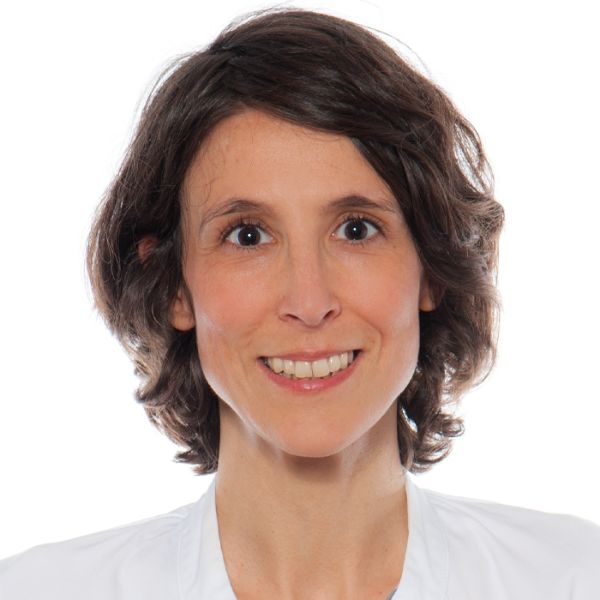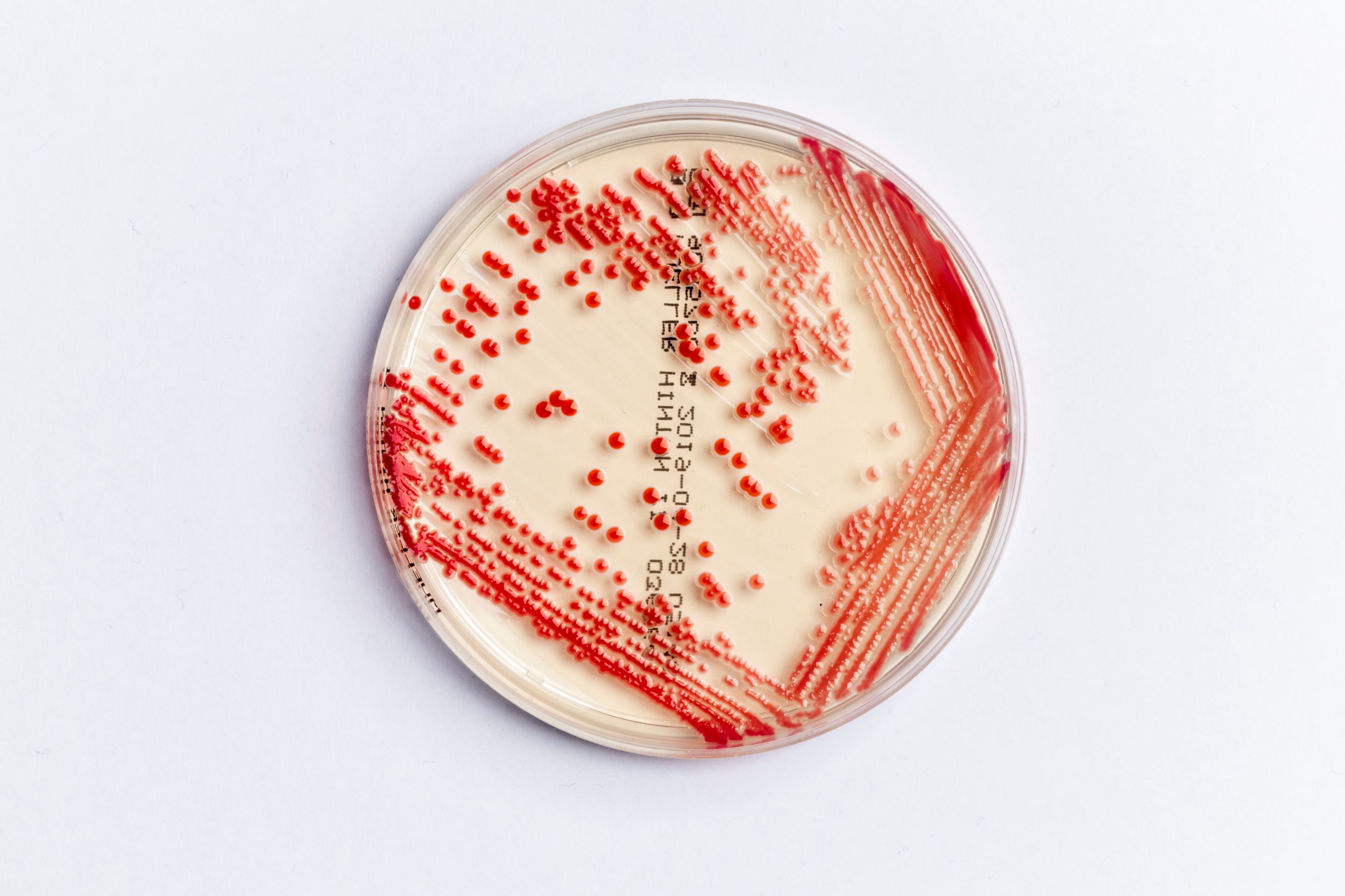
A look behind the scenes
Ultra-modern, indispensable and colorful.
Join us for a look behind the scenes of laboratory medicine at the University Hospital Basel
Laboratory medicine at the University Hospital Basel is a fascinating field that encompasses far more than one might expect at first glance.
We work closely with the Medical Genetics and Pathology departments.
Clinical Chemistry, Diagnostic Hematology, Medical Immunology, and Medical Microbiology. We offer a broad diagnostic spectrum and an important service for the hospital and external referrers.
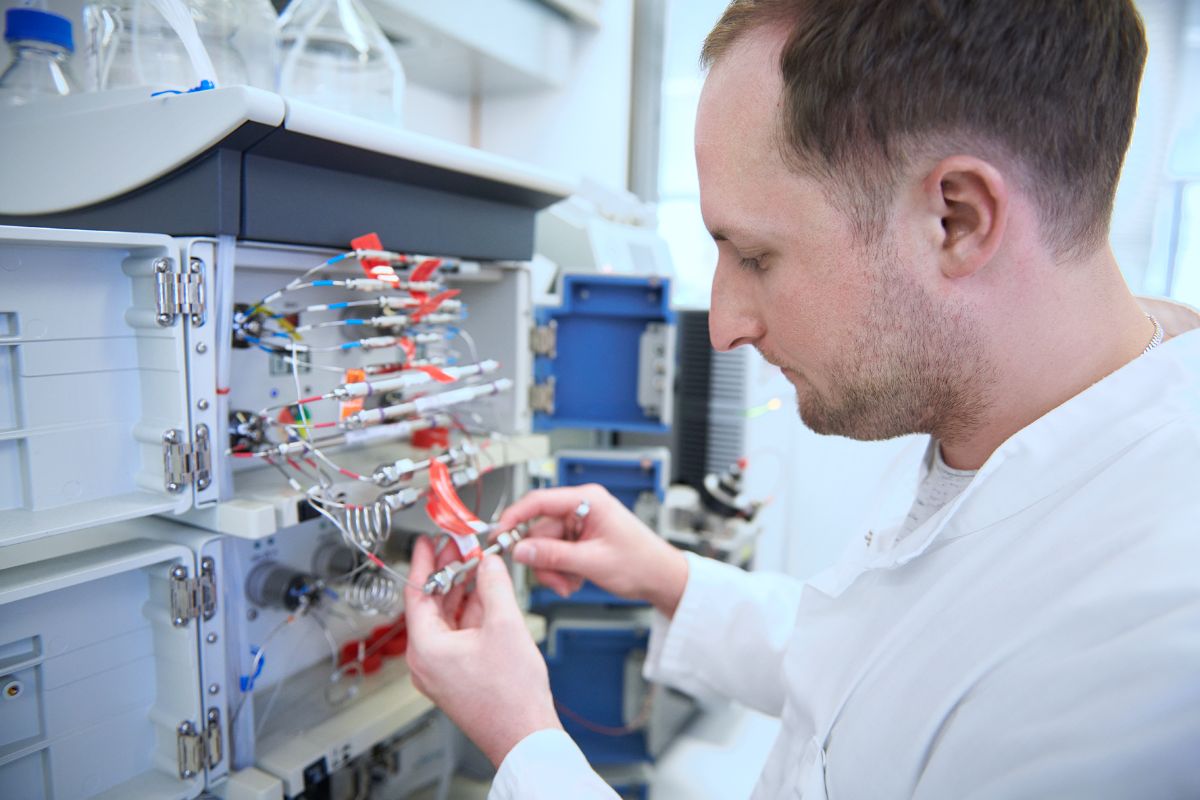
7.1 Mio.
We generated laboratory results in 2022.
218
employees are part of our team, including 38 men and 180 women.
28
of our employees have been working in laboratory medicine for over 30 years.
51
BMA students and interns are supported in their training by us over the course of a year.
The people behind the laboratory tests
Fascinating detective work takes place behind the mysterious scenes of a laboratory, where human expertise is invaluable.
Among them we find biomedical analysts who take care of carrying out tests. Likewise, the BMAs, the detectives of technology, conscientiously maintain the equipment and closely monitor the results so that no trace is overlooked.
The academics, on the other hand, act as masters of interpretation, deciphering clues in the mysterious patterns of the test results and making diagnoses. Our bioinformaticians are clever code-breakers who decode complex data and lay the foundation for personalized treatment plans.
We have over 218 employees, some of whom introduce themselves here:
Lernen Sie uns kennen
Come a little closer...
Welcome to an exclusive journey behind the scenes of our laboratory, where daily work is transformed into a fascinating adventure of discovery and innovation.
In the upcoming clips, we reveal the secrets and details of our daily work - from tiny samples under the microscope to the complex instruments that support us in our mission. Be enchanted by the beauty of science and experience how we understand and shape the world, piece by piece. Welcome to our world in the laboratory!
Separating blood proteins requires many manual steps to achieve the result.
Checking immunosuppression in a transplanted patient - here too we use liquid chromatography coupled to mass spectrometry (LC-MS). The samples are injected into the device using an autosampler.
Automated analysis in microbiology.
Bacteria have to be cultivated ("grown") for detection - here, too, we are sometimes helped by machines.
Sample materials such as urine or swabs are automatically inoculated onto culture medium plates. This allows bacteria and yeasts to be cultivated, identified and tested for the effectiveness of various antibiotics.
Our departments introduce themselves
The Department of Clinical Chemistry is presented by:
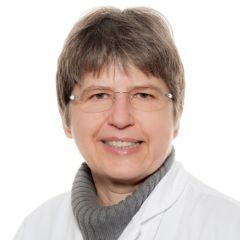
Prof. Katharina Rentsch Savoca
Leitung
Labormedizin
Fachleiterin Klinische Chemie
Tel. +41 61 26 54236
About my career
After studying pharmacy, I completed further training as a clinical chemist. Since then, I have been working in clinical chemistry and have specialized in the field of drug level monitoring and toxicology.
As Head of Clinical Chemistry, I lead a team of academics and BMAs who take care of patient samples 24 hours a day, 7 days a week. I have also been in charge of laboratory medicine at the USB for almost 10 years, ensuring the efficiency and performance of the entire laboratory.
What fascinates me about laboratory medicine
What fascinates me about laboratory medicine is the combination of highly specialized analysis with medical diagnostics. With our wide range of analyses, we support the diagnosis of our patients.
What is clinical chemistry?
Clinical chemistry covers a very wide range of analyses that are determined using chemical or biological methods. These describe the state of body substances and their metabolism in both healthy and sick people. For example, proteins, lipids, carbohydrates, hormones or drugs.
Clinical-chemical analyses are used for the clarification of many diseases, so that we have a close cooperation with most of the clinics of the University Hospital. A large number of analyses are offered 24 hours a day, 365 days a year and the results are available within less than an hour in an emergency.
We use many different methods: For analyses with very large numbers of samples, we have a highly automated analysis system in the emergency laboratory with photometric and immunological methods; for the more specialized analyses, for example, liquid chromatography-mass spectrometry (LC-MS/MS) is used.
From everyday working life:
How high is the blood sugar? Fully automated diagnostics in clinical chemistry.
The Department of Hematology is presented by:
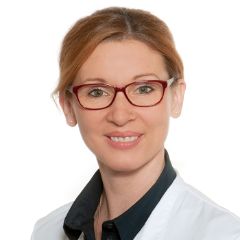
Dr. Corinne Widmer
Leitende Ärztin
Hämatologie, Diagnostische Hämatologie
Fachleiterin Diagnostische Hämatologie
Tel. +41 61 32 86275
About my career
After completing my studies in human medicine and medical biology, I qualified as a specialist in internal medicine and hematology and trained as a laboratory specialist in hematology.
What particularly fascinates me about my field
Among other things, diagnostic haematology is a cornerstone for the early detection of diseases such as blood cancer. The constant development of ever more precise tests to offer our patients the best and personalized diagnostics, such as the identification of genetic blood disorders, is both fascinating and challenging. This in turn enables ever more targeted therapies and thus makes a significant contribution to improving the survival of our patients.
What do you do in hematology?
The variety of blood analyses enables a wide range of diagnostic possibilities and plays a central role in the detection and monitoring of diseases and is indispensable in many areas of medicine.
The methods used include traditional microscopy of blood cells, flow cytometry and also the latest technologies such as next-generation sequencing, which enable genetic assessments.
Furthermore, the University Hospital Basel also has a stem cell laboratory and an umbilical cord blood bank for diagnostic haematology, which produces blood stem cells for stem cell transplants, as well as an HLA laboratory(examination of human leukocyte antigens) which determines the matching persons of organ and tissue transplants.
In addition to specific specialist knowledge, this exciting and diverse work is also based on a certain passion for searching for the cause of patients' complaints in an almost detective-like manner.
From everyday working life:
Good mixing of the whole blood samples is very important for analyzing the blood cells.
The Department of Medical Immunology is presented by:

About my career
After studying biomedicine, I completed my doctorate in the field of immunology and further training as a medical immunologist.
What particularly fascinates me about my field
It is fascinating to see how our knowledge of the immune system is constantly growing every day and how this knowledge is simultaneously and continuously being translated into new diagnostic methods and effective therapies, using molecules and cells that are themselves derived from the same immune system.
What is medical immunology?
Medical immunology is a specialized field of laboratory medicine. Our specialists use laboratory diagnostics to support doctors in the treatment of patients with diseases of the immune system, including allergic diseases, autoimmune diseases and immunodeficiencies. We also support patients undergoing immunomodulatory therapy and advise on organ and cell transplants.
The department carries out modern, patient-specific immunological laboratory tests and offers both pre-analytical and post-analytical advice and consultations. Medical Immunology also advises on the implementation of the latest immunological developments in clinical patient care.
The medical immunology tests are mainly based on the analysis of body material such as blood or urine. This primarily involves analyzing proteins (including immunoglobulins, complement factors and cytokines) and immune cells (especially leukocytes). The resulting findings provide insights into the functions and possible dysfunctions of the immune system and can also provide information on the effectiveness of a treatment.
From everyday working life:
Diagnostics of autoimmune diseases - here too, a robot helps us to prepare the samples.
The Department of Microbiology is presented by:
For bacteriology/mycology:
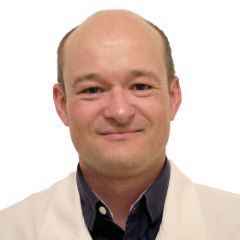
Dr. Peter Michael Keller
Fachleiter Klinische Bakteriologie und Mykologie
Labormedizin
Tel. +41 61 55 65749
About my career
After studying human medicine, I completed further training in medical microbiology.
What particularly fascinates me about my field
Medical microbiology is an impressive field with many fascinating aspects:
- It is an invisible world: microorganisms that are not visible to the naked eye have an enormous impact on our health and our lives.
- Diversity: There are millions of microorganisms, many of which have not yet been identified or studied.
- Disease & Health: Microorganisms can be both disease-causing pathogens and beneficial probiotics.
- Antibiotics & Resistance: The discovery of antibiotics revolutionized medicine. However, the rapid development of resistance presents us with new challenges.
- Epidemiology: The study of the spread of diseases and how they can be stopped is particularly relevant in times of pandemics.
What is clinical bacteriology and mycology?
Clinical bacteriology and mycology is a specialized field within medical microbiology. It focuses on the study of bacteria and fungi that can cause disease in humans.
While bacteria encompass an enormous variety of microorganisms with a plethora of pathogens, mycology deals with fungal infections that can range from superficial to systemic diseases.
The specialty plays a crucial role in the diagnosis, treatment and prevention of bacterial and fungal infections. It is also at the forefront of the fight against antibiotic resistance. Advances in molecular diagnostic techniques have improved the speed and accuracy of pathogen identification. In addition, research in this area is constantly changing as new pathogens are discovered and therapies developed. The sequencing of pathogens allows the investigation of transmission chains.
From everyday working life:
There are a lot of bacteria in this sample. In order for them to be identified, they must be cultivated ("grown") as purely as possible in a subculture.
For clinical virology:
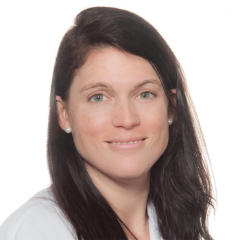
About my career
After completing my doctorate in the field of medical microbiology, I continued my academic career with the FAMH training as a laboratory specialist in medical microbiology. As part of this qualification, I deepened and expanded my expertise in clinical virology.
In my current role as head of the SAS-accredited diagnostic laboratory for clinical virology, I am responsible for routine diagnostics in a highly automated laboratory together with an interdisciplinary team of academics and biomedical analysts, as well as for the establishment of new diagnostic procedures.
What is clinical virology?
Viruses are responsible for a wide range of infectious diseases, from the simple flu to AIDS and COVID-19. In times of pandemics, such as during COVID-19, virological diagnostics is becoming increasingly important globally as it is crucial for public health care and pathogen containment.
Modern technologies such as nucleic acid amplification tests and next-generation sequencing enable rapid and accurate identification of viruses, which is essential for the effective treatment of patients.
Virological diagnostics also provide important information on the resistance of a virus to antiviral drugs, thus enabling individualized and targeted treatment.
This specialty requires close collaboration between virologists, biomedical analysts, clinicians and other specialists, creating an interdisciplinary and dynamic working environment.
From everyday working life:
Manual work is required here: detection of special antibodies against viruses using ELISA technology (enzyme-linked immunosorbent assay).
Further information on laboratory medicine at the University Hospital Basel can be found on these pages:

